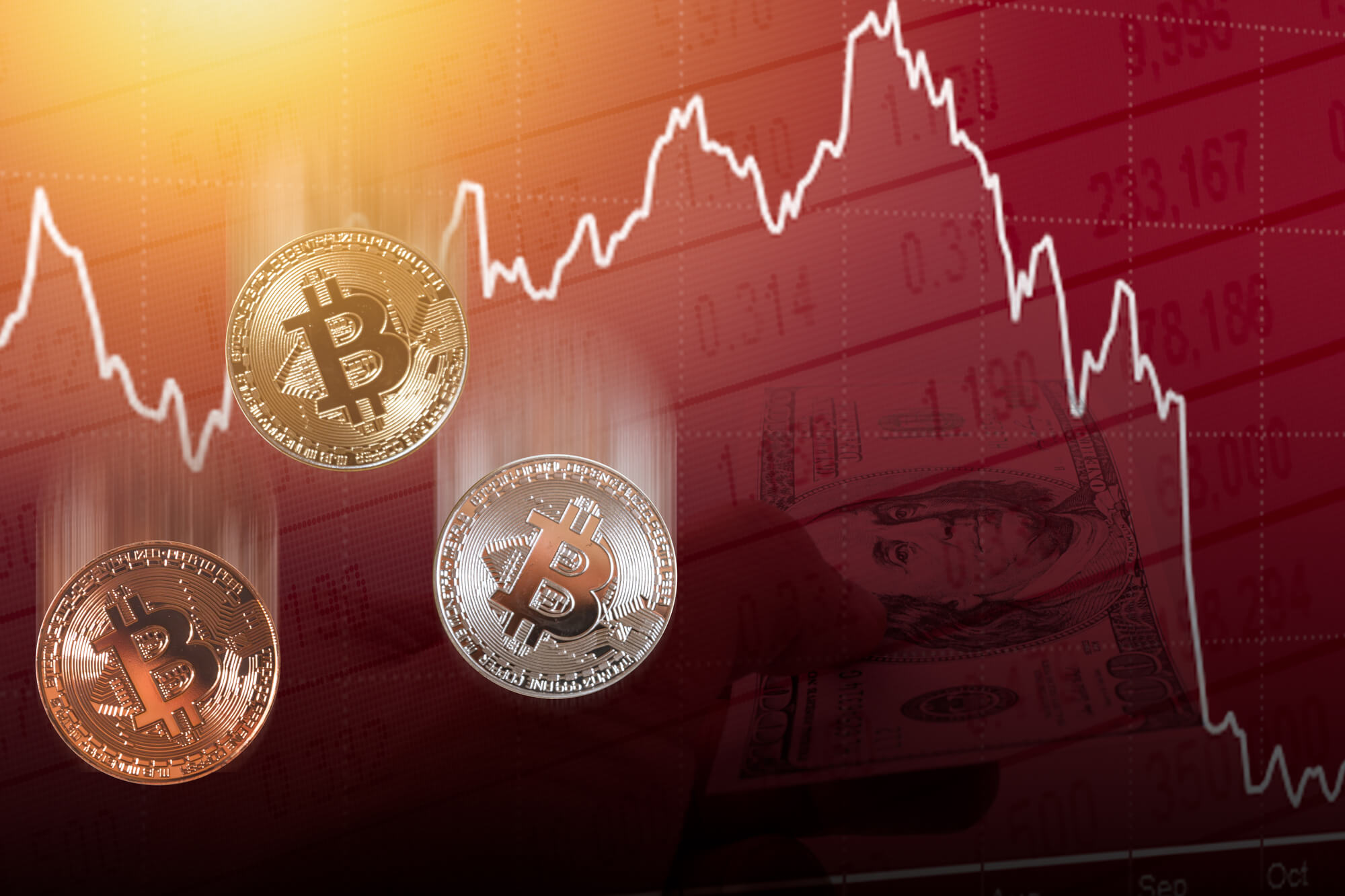The Role of Institutional Investors in Crypto Market Movements

- Understanding the impact of institutional investors on cryptocurrency prices
- How institutional investors influence market trends in the crypto space
- The role of hedge funds and investment firms in shaping crypto market movements
- Analyzing the behavior of institutional investors in the volatile world of cryptocurrencies
- The significance of institutional capital in driving the growth of digital assets
- Challenges and opportunities for institutional investors in the evolving crypto market
Understanding the impact of institutional investors on cryptocurrency prices
Understanding the impact of institutional investors on cryptocurrency prices is crucial for anyone involved in the crypto market. Institutional investors, such as hedge funds, investment banks, and pension funds, have the potential to significantly influence the prices of cryptocurrencies due to their large capital and trading volumes.
When institutional investors enter the crypto market, they bring with them a level of credibility and legitimacy that can attract more retail investors. This influx of new investors can lead to increased demand for cryptocurrencies, driving up prices. On the other hand, if institutional investors decide to sell off their holdings, it can cause prices to plummet.
One of the key ways in which institutional investors impact cryptocurrency prices is through their trading strategies. These investors often have access to advanced trading tools and algorithms that allow them to execute large trades quickly and efficiently. This can lead to sudden price movements in the market, known as “whales” making waves.
Additionally, institutional investors can also influence cryptocurrency prices through their market sentiment. If a prominent hedge fund manager or investment bank publicly announces their support for a particular cryptocurrency, it can create a positive sentiment among investors, leading to an increase in prices. Conversely, negative news or regulatory actions from institutional investors can have the opposite effect.
In conclusion, understanding how institutional investors affect cryptocurrency prices is essential for navigating the volatile crypto market. By keeping an eye on the actions and sentiments of these investors, traders and investors can make more informed decisions and potentially capitalize on market movements.
How institutional investors influence market trends in the crypto space
When it comes to the crypto space, institutional investors play a significant role in influencing market trends. These investors, such as hedge funds, pension funds, and asset management firms, have the financial power to make large investments in cryptocurrencies, which can have a substantial impact on prices and market movements.
One way in which institutional investors influence market trends in the crypto space is through their buying and selling activities. When these investors decide to buy or sell a particular cryptocurrency, it can create a domino effect, causing other market participants to follow suit. This can lead to significant price fluctuations and trends in the market.
Moreover, institutional investors often conduct in-depth research and analysis before making investment decisions in the crypto space. Their actions are based on market data, trends, and projections, which can provide valuable insights into the future direction of prices. As a result, their decisions can shape market sentiment and influence the overall direction of the market.
Additionally, the entry of institutional investors into the crypto space can bring a sense of legitimacy and credibility to the market. Their involvement can attract more retail investors and institutional players, leading to increased trading volumes and liquidity. This, in turn, can help stabilize prices and reduce volatility in the market.
In conclusion, institutional investors have a significant impact on market trends in the crypto space. Their buying and selling activities, research-based decisions, and overall influence can shape the direction of prices and market movements. As the crypto market continues to evolve, the role of institutional investors is likely to become even more pronounced.
The role of hedge funds and investment firms in shaping crypto market movements
One of the key players in shaping the movements of the cryptocurrency market are hedge funds and investment firms. These institutional investors have a significant impact on the prices of digital assets due to their large capital and trading volumes. When hedge funds and investment firms enter or exit the market, it can cause significant fluctuations in prices.
These entities often engage in high-frequency trading and algorithmic strategies, which can amplify market movements. Their trading decisions are based on a combination of fundamental analysis, technical analysis, and market sentiment. As a result, their actions can create both upward and downward pressure on cryptocurrency prices.
Furthermore, hedge funds and investment firms have the resources to conduct in-depth research and analysis on the crypto market. This allows them to identify trends and opportunities that retail investors may not be aware of. Their trading activities can set the tone for market sentiment and influence the behavior of other market participants.
Overall, the role of hedge funds and investment firms in the crypto market cannot be understated. Their actions play a crucial role in shaping market movements and determining the direction of price trends. As institutional investors continue to allocate capital to digital assets, their influence on the cryptocurrency market is only expected to grow in the future.
Analyzing the behavior of institutional investors in the volatile world of cryptocurrencies
In the volatile world of cryptocurrencies, the behavior of institutional investors plays a crucial role in shaping market movements. These investors, such as hedge funds, asset management firms, and pension funds, have the power to influence the prices of digital assets through their large-scale trades and strategic decisions. Analyzing their actions can provide valuable insights into the trends and patterns that drive the crypto market.
One key aspect of institutional investor behavior in the crypto space is their risk appetite. While some investors are more conservative and prefer to stick to established cryptocurrencies like Bitcoin and Ethereum, others are willing to take on higher levels of risk by investing in newer, more volatile assets. Understanding how different types of investors approach risk can help predict how prices may fluctuate in the future.
Another important factor to consider is the impact of regulatory developments on institutional investor behavior. As governments around the world continue to grapple with how to regulate cryptocurrencies, institutional investors must navigate a complex and evolving legal landscape. Changes in regulations can have a significant impact on investor sentiment and may lead to sudden shifts in market dynamics.
Moreover, the entry of institutional investors into the crypto market has brought a new level of professionalism and sophistication to the space. These investors often conduct in-depth research and analysis before making investment decisions, which can help stabilize prices and reduce volatility. By studying how institutional investors evaluate and approach different cryptocurrencies, traders and analysts can gain a better understanding of market trends.
Overall, the behavior of institutional investors is a key driver of crypto market movements. By closely monitoring their actions and decisions, market participants can gain valuable insights into the factors influencing price fluctuations and make more informed investment choices. As the crypto market continues to evolve, understanding the role of institutional investors will be essential for staying ahead of the curve.
The significance of institutional capital in driving the growth of digital assets
One of the key drivers of growth in the digital asset market is the influx of institutional capital. Institutional investors, such as hedge funds, pension funds, and asset managers, play a significant role in shaping the direction of the crypto market. Their participation brings a level of credibility and stability to the market, attracting more retail investors and increasing overall liquidity.
As institutional investors enter the crypto space, they bring with them a wealth of experience and resources that can help drive innovation and growth. Their involvement can lead to increased adoption of digital assets, as well as the development of new financial products and services tailored to institutional clients.
Furthermore, institutional capital can help reduce volatility in the market by providing a more balanced and diversified investor base. This can lead to a more sustainable growth trajectory for digital assets, as well as increased mainstream acceptance.
Challenges and opportunities for institutional investors in the evolving crypto market
As the crypto market continues to evolve, institutional investors are faced with both challenges and opportunities. The increasing mainstream acceptance of cryptocurrencies presents a unique chance for institutional investors to diversify their portfolios and potentially achieve higher returns. However, this market also comes with its own set of risks and uncertainties that investors must navigate.
One of the main challenges for institutional investors in the crypto market is the regulatory environment. The lack of clear regulations in many jurisdictions can create uncertainty and legal risks for investors. Additionally, the volatility of the crypto market can be a barrier for institutional investors who are used to more stable asset classes. Managing risk and ensuring compliance with regulations are crucial considerations for institutional investors looking to enter the crypto market.
On the other hand, the evolving nature of the crypto market also presents opportunities for institutional investors. The potential for high returns and the ability to access new and innovative investment opportunities are attractive prospects for many investors. By staying informed about market trends and developments, institutional investors can position themselves to take advantage of the growth potential in the crypto market.
Overall, institutional investors face a complex landscape in the evolving crypto market. By carefully weighing the risks and opportunities, staying informed about regulatory developments, and diversifying their portfolios, institutional investors can navigate this market successfully and potentially achieve significant returns on their investments.



